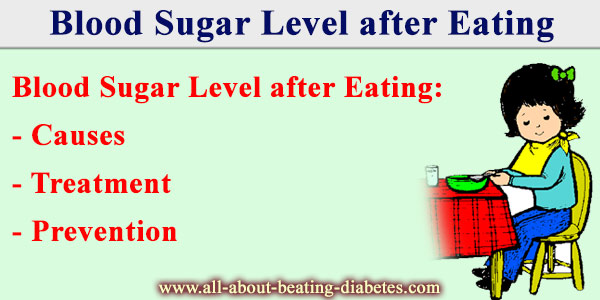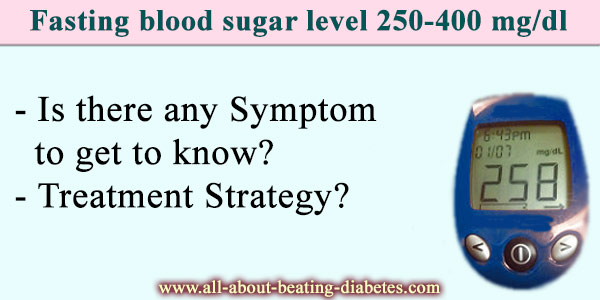- Home
- blood sugar levels
- level-250-400-mgdl-after-eating
Blood
sugar level 250-400 mg/dl After Eating and Fasting
Ok, you ran diabetes test and you got blood sugar level 250-400 mg/dl after eating ranging 251, 252, 253 ,254 ,255, 256, 257, 258, 259, 260, 261, 262, 263, 264, 265, 266, 267, 268, 269, 270, 271, 272, 273, 274, 275, 276, 277, 278, 279, 280, 281, 282, 283, 284, 285, 286, 287, 288, 289, 290, 291, 292, 293, 294, 295, 296, 297, 298, 299, 300, 301, 302, 303, 304, 305, 306, 307, 308, 309, 310, 311, 312, 313, 314, 315, 316, 317, 318, 319, 320, 321, 322, 323, 324, 325, 326, 327, 328, 329, 330, 331, 332, 333, 334, 335, 336, 337, 338, 339, 340, 341, 342, 343, 344, 345, 346, 347, 348, 349, 350, 351, 352, 353, 354, 355, 356, 357, 358, 359, 360, 361, 362, 363, 364, 365, 366, 367, 368, 369, 370, 371, 372, 373, 374, 375, 376, 377, 378, 379, 380, 381, 382, 383, 384, 385, 386, 387, 388, 389, 390, 391, 392, 393, 394, ,395, 396, 397, 398, 399.
This is considered as mild to moderate Diabetes. While giving more info, I have decided to share with you some of problems my daily patients online and offline have, with appropriate advice and caring tips.
Hope you will understand if I let them anonymous to respect their privacy (most of these patients are from my offline clinic). I wish the advice would be helpful for you too. If you have your own concern, do not hesitate to write me back.
Causes of getting blood sugar levels 250-400 mg/dl after eating?
After eating, the intake of carbohydrates we take with food increases the levels of glucose in our bloodstream. So, there is a peak of hyperglycemia after we eat.
In normal people, the body increases the levels of insulin in order to neutralize the increased glucose levels.
In diabetic people, this compensatory mechanism does not work properly, due to the improper production of insulin, or to the decreased response of the cells towards insulin, or both.
So, glucose builds up in the bloodstream causing hyperglycemia.
Fasting blood sugar level 250-400 mg/dl
Fasting means not eating or drinking anything aside from water, for at least 8 hours before the testing. It shows the most reliable results of blood glucose.
When fasting, the body triggers the production of Glucagon. Glucagon makes the liver metabolize glycogen (the type of sugar reserve supply in the liver) which is released into the bloodstream as sugar.
This happens in normal people, not suffering from diabetes. In people with diabetes, something in the aforementioned chain-reaction does not work properly, so we get high levels of blood sugar building up in the bloodstream.
My patient case: Epileptic Patient with blood sugar 288 mg/dL after eating
Patient's Case: Hello,
I am 30 years old, with weight around 123 kgs. My blood sugar levels (bsl) were detected high recently up to 288 mg/dL. My left heel is very swollen and tendered and stiffed. Is this due to high bsl? I take Phenytoin 300 and sodium valproate 500 for epilepsy since 15 years now. Can they cause high bsl?
Answer: Hi,
A blood sugar level of 288 mg/dL after eating is indicating that you are diabetic.
Having your left heel inflammed (very swollen, tendered and stiffed) is not related to high bsl. It is indicating inflammation of soft tissue of sole. Apply cold compresses and take anti-inflammatory meds orally and apply locally.
Anti-epileptic drugs like Phenytoin 300 can cause blood sugar to raise up to spike levels. You have been taking anti-epileptic drugs for 15 years. There are some studies that suggest that long use of these drugs causes adverse effects in bone mineralization and calcium metabolism. Troubles with bones may rise as the time passes.
On the other hand, some epileptic drugs affect the insulin production thus increasing the risk of type 2 diabetes. Fluctuating blood sugar increases the episodes of seizures as well. Hyperglycemia tends to trigger focal or local seizures and hypoglycemia tonic-clonic seizures.
Your
diabetes may be induced by the drugs but this is not for sure as there
is not too much evidence. I think you must see your doctor as soon as
possible to examine your foot and to evaluate other health problems you
have.
Hope this is helpful for you.
The symptoms of blood sugar levels 250-400 mg/dl after eating and fasting
Diabetes can be a sneaky disease. It sometimes causes no symptoms, unless levels of blood sugar are detected at high range. Normally, glucose levels of 250 mg/dl and higher are associated with diabetes symptoms:
- polyuria (excessive urination)
- polydipsia (excessive thirst),
- weight loss,
- blurred vision,
- fatigue,
- tingling or numbness of lower limbs, etc.
These symptoms are the same for fasting blood sugar levels too with a difference that they will be present first thing in the morning and not a few minutes after eating.
On contrary, in type 1 diabetes, levels of blood sugar above 250 mg/dl can cause diabetic ketoacidosis (DKA), which is a dangerous complication which can also cause death. This life-threatening condition happens when there is insufficient insulin, and glucose cannot make it to enter inside the cells.
In this condition, the body breaks down fat and muscles to create energy. This causes the increase of ketones in the bloodstream, causing DKA.
DKA happens in people suffering from type 1 diabetes. People with type 2 diabetes do not develop DKA, because there is a basal production of insulin, even though it is not sufficient for the body’s needs.
Symptoms of DKA include abdominal pain, cramps, fruity breath, rapid deep breathing, thirst, drowsiness, loss of appetite, confusion, and when it is severe it can cause cerebral edema, coma, and even death.
Are you experiencing one of these symptoms? Tell our doctors and find out if you have diabetes Now. Click here.
Patient's case: Dizzy/tired Diabetic with flunctuating 266 mg/dL Blood Glucose after eating
Question: Diabetic feeling tired and dizzy. Blood sugar fluctuating:
- fasting glucose level (gl) = 112 mg/dL
- random blood sugar (bs) = 251 mg/dL
- after eating glucose = 266 mg/dL
- 5 hours after meal = 168 mg/dL
- 8 hours after having lunch = 133 mg/dL
What to do?
Answer: Fluctuating blood glucose levels can be dangerous as they are the cause of the future complications of diabetes. You can treat prediabetes with diet and exercise but not diabetes.
Hypoglycemia
causes dizziness and tiredness and must be avoided as it can progress to
lower levels and make you faint. In your condition, you can not control
your blood glucose levels only by diet and exercise. You need proper
medical attention as you tend to have more hypoglycemic episodes and you
need to start medication to keep diabetes under control.
You need to repeat the glucose
level test and HbA1c test as well. Make sure you do not miss any meals
and that you are eating normally. Maybe you are experiencing
hypoglycemic episodes because you do not eat properly or because any
other underlying condition or medication you have been taking recently
for other purposes.
Hope this is helpful for you.
Blood sugar levels 250-400 mg/dl after eating and fasting - Treatment
The treatment strategy includes medical therapy and therapeutic lifestyle changes.
The first-line therapy is medical therapy, following the prescription by your doctor especially for you.
Lifestyle changes are also very important in the treatment of
diabetes. These lifestyle changes include:
1. Eating a healthy diet - this means cutting off fat and caloric foods, and eating fiber-rich foods instead, such as legumes, whole grain products, all kind of vegetables and fruits. Eat small meals several times a day, as scheduled by the doctor.
2. Weight loss - Losing weight lowers your glucose levels. A loss of only 7 % of your total body weight significantly decreases glucose levels.
3. Exercising - Exercising not only lowers your glucose levels, but it also improves blood circulation and lowers fats in the bloodstream. Exercise at least 45-60 min every day. Consider brisk walking, bike riding, swimming laps, playing your favorite sport etc. DO NOT exercise if you have ketones in the urine.
4. Quitting smoking and alcohol
5. In DKA, the treatment should be done in a specialized hospital unit. The treatment includes restoring the hydroelectric balance of the patient. Then, the long-term treatment should be done as prescribed by the doctor.
If all these changes are still enough and cannot manage to lower your blood glucose, you can try a natural alternative. Click here to find it out now.
Patient's case: Non Diabetic with blood glucose 330 mg/dL after eating an apple&drank orange juice - Is this cause for concern?
Question:Husband non diabetic went to hospital; measure blood glucose - 330 mg/dL; before he ate an apple and drank a glass of homemade orange juice. Send home with pills to lower blood sugar. Is this a cause for concern?
Answer: Before I say my opinion I would like to know the reason why your husband was sent to the hospital. What were the main symptoms that made him a hospitalized patient? Can you send me a complete glucose levels profile done in the hospital?
The doctors in the hospital have performed an oral glucose tolerance test (OGTT) on your husband. What they did is correct. There are other ways to perform this test too. The idea is to give the patient to take 75-100grams of sugar (in orange juice for example) and monitor the blood sugar levels after then.
This test may last till to four hours as it may become necessary
to monitor the blood glucose level several times if the first result is
not clear. Performing HbA1C test will reveal the average glucose levels the last 3 months to evaluate what's really happening with his bsl.
One thing is sure though: Your husband is diabetic and
starting insulin medication and frequent check of blood glucose level is
very important for his health.
Hope this is helpful for you.
Prevention of having blood sugar levels 250-400 mg/dl after eating and fasting
All therapeutic lifestyle and diet changes can serve as good preventive measures of getting your blood sugar within 250 to 400 high range.
If you want a more personalized help in preventing to have such high blood glucose after eating, click here to see how our doctors can help you now.
Written by Dr.Albana Greca Sejdini, Md, MMedSc
Medically reviewed by Dr.Ruden Cakoni, MD, Endocrinologist
Last medically reviewed 01/02/2019
References:
Diabetes complications Questions or Problems? Get Help Here
This is the place where you can ask a question about any aspect of diabetes complications.
It's free and it's easy to do. Just fill in the form below, then click on "Submit Your Question".

